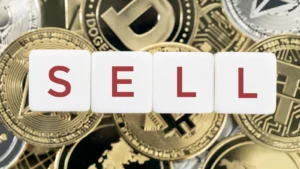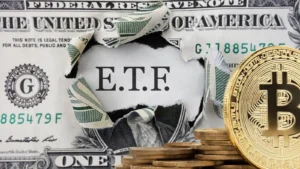In the simplest terms, a smart contract is a self-executing contract with predefined rules. When the conditions of the agreement are met, the smart contract automatically executes the agreed-upon actions. For example, let’s say you want to buy a house. You and the seller could agree on a price and terms and then create a smart contract that automatically transfers the money to the seller once the house is transferred to you. No need for lawyers, escrow or even a human third party.
In this article, we’ll explore what smart contracts are and how they work. We’ll also look at some of the potential applications of smart contracts in cryptocurrency and beyond.
What Is a Smart Contract?
Smart contracts are a key component of cryptocurrency, and they’re revolutionizing the way business is done. Simply put, a smart contract is a computer protocol that helps to facilitate, verify, or enforce the execution of a contract. They’re made possible by blockchain technology that underlies cryptocurrencies like Bitcoin and Ethereum.
Contracts written in code are stored on the blockchain, where they’re automatically executed when certain conditions are met. This removes the need for intermediaries like banks or lawyers and cuts down on transaction costs. Plus, it makes contracts more transparent and tamper-proof. Smart contracts are computer programs that run on a blockchain. They can be used to sell and buy Bitcoin in Dubai and other cryptocurrencies, but they also have many other uses. For example, they can be used to buy or sell goods in a game.
How to Create a Smart Contract?
Now that you understand a smart contract, you’re probably wondering how one is created. The first step is to develop a set of rules and conditions that will trigger the execution of the contract. Once these are established, they need to be coded into a computer language that can be read by computers. Once the code is written, it needs to be added to the blockchain. This can be done through a cryptocurrency exchange or a blockchain platform like Ethereum. Once the contract is added to the blockchain, it is stored on a distributed ledger and can’t be changed. This makes smart contracts tamper-proof and also means that they can be enforced automatically.
How Do Smart Contracts Work?
To understand how smart contracts work, you first need to understand what a blockchain is. The blockchain is an open, distributed ledger that can be accessed by anyone with an internet connection, and it’s secure because it’s decentralized and encrypted. The blockchain is immutable; once a transaction has been verified and recorded, it cannot be changed retroactively. A smart contract is an agreement that runs on top of the blockchain. It can be used to automate certain business processes, like issuing shares or transferring money from one person to another.
Smart contracts are written in computer code and stored on the blockchain so that they can be executed automatically when certain conditions are met, such as payment being received or data being validated by another party. So, what exactly is a smart contract? A smart contract is a computer protocol that facilitates, verifies, or enforces the negotiation or performance of a contract. Smart contracts were first proposed by Nick Szabo in 1996. He defines a smart contract as “a set of promises, specified in digital form, including protocols within which the parties perform on these promises.” In the context of cryptocurrency, a smart contract is a program that runs on the blockchain and that can execute transactions automatically when certain conditions are met.
Advantages of Smart Contracts
Smart contracts are digital contracts that are self-executing and do not require a third party to enforce them. This makes them a more secure and efficient way to conduct transactions, as they eliminate the need for middlemen such as lawyers or escrow services. Another advantage of smart contracts is that they are transparent and immutable.
This means that the terms of the contract are publicly available and cannot be altered without the consent of all parties involved. And because the contract is encoded on a blockchain, it is tamper-proof and cannot be hacked or changed without everyone on the network is aware of it. The main advantage of using smart contracts over traditional methods is that they eliminate the need for third-party verification and approval.
Smart contracts are also more secure because they cannot be altered without being detected as well as they are more transparent than traditional agreements because they are stored on a distributed ledger which is visible to all parties involved in the transaction.
Risks & Limitations of Smart Contracts
When you’re dealing with cryptocurrencies, it’s important to be aware of the risks and limitations of smart contracts. First and foremost, it’s important to remember that smart contracts are not legally binding. This means that, in the event of a dispute, there is no guarantee that the terms of the agreement will be upheld. Another risk is that, because smart contracts are executed on a blockchain, they are public and immutable.
This means that any party involved in the contract can see the code and all associated transactions. As such, it’s important to be absolutely sure that you can trust the other parties involved in order to avoid any potential privacy issues. Finally, it’s important to remember that smart contracts are still in their early developmental stages. This means that there is always the potential for bugs or glitches that could result in lost funds or other damages. As such, it’s always important to research before entering into a wise contract agreement.
Uses of Smart Contracts
So, what are some real-world examples of where smart contracts can be used?
Real Estate
In the real estate industry, smart contracts can be used to streamline the sale and purchase of a property. Smart contracts are a new way to facilitate real estate transactions. With smart contracts, instead of relying on a third party to verify and approve the deal, the transaction is recorded on a blockchain. This means that there is no waiting period because the transaction takes place immediately after it occurs. It also means that there’s no need for middlemen or lawyers; you can simply put in an offer and receive money by email or text message.
The smart contract could also be programmed to automatically release funds if a certain condition is met, such as a property being sold to a specific party, or if the seller sells back their own property within a certain amount of time. This would help prevent fraud and ensure that interested parties are not able to take advantage of anyone else’s system by buying up properties at low prices and waiting for them to sell back at high prices later on down the line.
Supply Chain
In the supply chain industry, smart contracts can be used to track the movement of goods and ensure that they are delivered on time. In supply chain management, smart contracts can be used to manage contract agreements between suppliers and customers. For example, if a supplier wants to deliver a product on time or early, they could use a smart contract to do so.
The supplier would commit funds towards when they will deliver the product; this commitment would trigger an automatic payment from the customer’s account into theirs once they’ve reached their deadline or agreed upon deadline. Smart contracts also make it possible for companies to automate their interactions with suppliers, customers, and other stakeholders. Smart contracts can also be used in other industries besides supply chain management. For example, smart contracts could be used in digital advertising where advertisers want to ensure that they receive payment from advertisers who meet the terms of an agreement.
Blockchain
In the blockchain industry, smart contracts can be used to create decentralized applications (apps). Smart contracts are an exciting new technology for the blockchain, which is used to make sure that cryptocurrency transactions are executed in a certain way. The most common use case is buying and selling cryptocurrency users buy and sell Bitcoin in Dubai with smart contracts, but they can be used in other ways as well. One of the most popular uses of smart contracts is buying and selling cryptocurrency. When you want to sell or buy Bitcoin in Dubai with Dollars, you need to go through an exchange site like Coinbase or Kraken. However, once you have made your purchase, it cannot be undone—you have to wait for it to be confirmed by the network before moving on with life (or until someone else buys it from you!). Smart contracts solve this problem by allowing users to make a transaction without having to wait for confirmation from the network. This means that users can make purchases immediately without worrying about getting ripped off by another buyer who has faster transaction speeds than them.
Examples of Smart Contracts in Cryptocurrency
Now that we know what a smart contract is, let’s go over a few examples of how they can be used in cryptocurrency.
Escrow services:
A smart contract can be used to hold funds in escrow until both parties have fulfilled their obligations. This could be used, for example, in a real estate transaction where the buyer’s funds are held until the seller provides the title deed.
Decentralized exchanges:
A decentralized exchange is an exchange that does not rely on a third party to hold the customers’ funds. Instead, trades are made directly between users (peer-to-peer) through an automated process. Smart contracts can be used to program these exchanges.
Lending platforms:
Smart contracts can also be used to create lending platforms where users can lend and borrow cryptocurrencies. The terms of the loan (such as interest rate and duration) can be programmed into the smart contract.
Future of Smart Contracts
So what does the future hold for smart contracts? There’s no doubt that smart contracts have a lot of potential. They could potentially revolutionize the way we do business and interact with each other. For example, imagine a world where all contracts are stored on the blockchain and are automatically enforced. This would eliminate the need for intermediaries, like lawyers and banks, and could make transactions faster, cheaper, and more secure. However, there are also some challenges that need to be addressed before smart contracts can reach their full potential. For example, scalability is a big issue that needs to be addressed. The Ethereum network can currently only handle about 15 transactions per second, which is not nearly enough for mass adoption. Another challenge is compatibility. Smart contracts need to be able to interact with existing systems, like legacy databases and applications. This is not an easy task, but it’s something that needs to be done if smart contracts are going to be widely adopted. Finally, there’s the issue of regulation. It’s still unclear how smart contracts will be regulated by governments around the world. This is a major obstacle that needs to be overcome before smart contracts can reach their full potential. In a nutshell, a Smart Contract is a self-executing digital agreement between two or more parties. The contract is encoded in such a way that it automatically executes when certain conditions are met. This could be something as simple as verifying that a payment has been made, or it could be a more complex set of conditions involving multiple parties.







